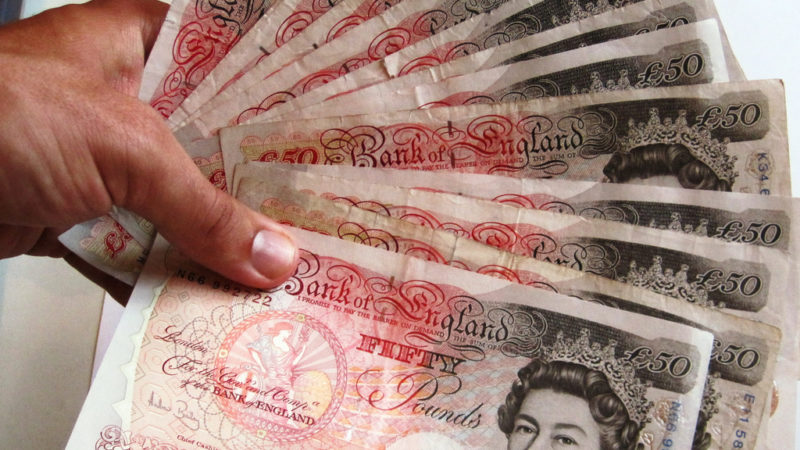Ahead of next week's budget announcement, Prem Sikka explains all the ways the British economy could be rescued immediately. But will the Tories ever deliver?

Britain’s Chancellor Philip Hammond will make this year’s budget announcement next week – the last before the Brexit deadline.
The government needs to invest in the economy and boost people’s purchasing power to arrest widening inequalities and the decline of city centres.
It cannot continue with its policy for tax cuts for the wealthy as it has done in previous budgets when it reduced rates of corporation tax, marginal income tax rates for top earners and capital gains tax.
With an eye on a possible snap general election the Prime Minister has already promised some loosening of the purse strings and diluted the obsession with reducing government debt.
The promises include, additional NHS spending of £20 billion by 2023 and the fuel duty to be frozen. Fuel duty currently brings in around £28.2bn and another freeze would probably cost close to £800m. Most of this will not benefit the less well-off.
Meanwhile, Tory MPs are pressing for reform of the Universal Credits and welfare budget, which would need another £2bn. Then there is the perennial promise to build more affordable houses, a pie in the sky.
The government can almost immediately boost people’s spending power, especially the power of the low-paid, without spending anything. All it needs to do is curb profiteering by capping gas, water, electricity prices and train fares and impose rent controls.
But does it have the political appetite?
What does the British economy need?
There is an urgent need to fix potholes; invest in more police officers, nurses, teachers, child care, social care, new technologies and manufacturing, and make the UK a dynamic economy.
The easiest way to launch a programme of national recovery would be through a quantitative easing programme. After all, the government used it to rescue banks. Why not do the same to build a productive economy?
It could also focus more on the leakage of tax revenues.
Each year, HMRC fails to collect around £33-35bn of taxes due to avoidance, evasion, arrears and other factors, which is officially is known as the tax gap.
Other studies estimate the amount to be around £59bn a year, and possibly even larger.
Tories have failed to collect £280bn-£472bn of tax revenues since coming to power in 2010, all because investment in HMRC and tougher action against tax avoiders has been a low priority for the government. Just think of the difference that even a fraction the lost revenues would make.
The Chancellor is constrained by the government’s 2017 election manifesto promises. He is unlikely to increase the basic rate of income tax or the standard rate of VAT.
The government is also expected to keep its promise of increasing the tax free personal allowance from £11,850 to £12,500. If it does not and freezes it until the next election, that can raise £5bn but will hurt the low-paid the most and damage its electoral chances.
Government could raise the threshold for the National Insurance contributions. Currently, the rate is 12% for income between £162 and £892 per week and 2% beyond that. The bands could be changed to extract more from those earning more than £100,000.
Furthermore, by cancelling the planned reduction in corporation tax rate from 19% to 17%, government could raise £5bn a year. It can increase the rate to 26%, where it was in 2010 and raise more than £14bn.
It can increase the marginal rate of income tax from 45% to 50% for incomes above £150,000 and higher for executives collecting vast pay packages. It can deal with fat-cattery and raise revenues by putting a ceiling on the amount of executive pay that companies can deduct from their taxable profits.
Revenues can also be raised by curbing tax perks of the wealthy.
Tax relief on payments into registered pension scheme currently costs the Chancellor over £24 billion a year. Almost 70% of the relief goes to higher and additional rate payers. Incomes between £46,351 and £150,000 are taxed at 40%, and above £150,000 are liable to marginal rate of 45%. This means that higher and additional rate taxpayers receive greater tax relief on contributions to pension schemes.
An egalitarian move to restrict the tax relief to the basic rate of income tax (i.e. 20%) could generate £10 billion a year.
The £2.7bn entrepreneurs’ relief is rife for cancellation. It was based on the premise that it would help business start-ups, but it is misdirected. It is available when a business is sold. It is hard to see how it incentivises someone to start a business or provides support up front. The relief was expected to cost about £500m rather than £2.7bn, which suggests organised exploitation.
Simple solutions, but no political will
There are plenty of ways of raising revenues, if the government is willing to end tax perks for the wealthy. But don’t expect a bonfire of their perks.
To improve their election chances, the Tories may take tiny steps towards diluting austerity, but that won’t be enough to boost the economy or improve people’s spending power.
The bigger problem is that austerity is deeply inscribed in the conservative party’s DNA and is all that it has advocated since 2010.
Changing that would require surgery in the shape of a general election.
Prem Sikka is Professor of Accounting at University of Sheffield and Emeritus Professor of Accounting at University of Essex. He tweets here.
Left Foot Forward doesn't have the backing of big business or billionaires. We rely on the kind and generous support of ordinary people like you.
You can support hard-hitting journalism that holds the right to account, provides a forum for debate among progressives, and covers the stories the rest of the media ignore. Donate today.



